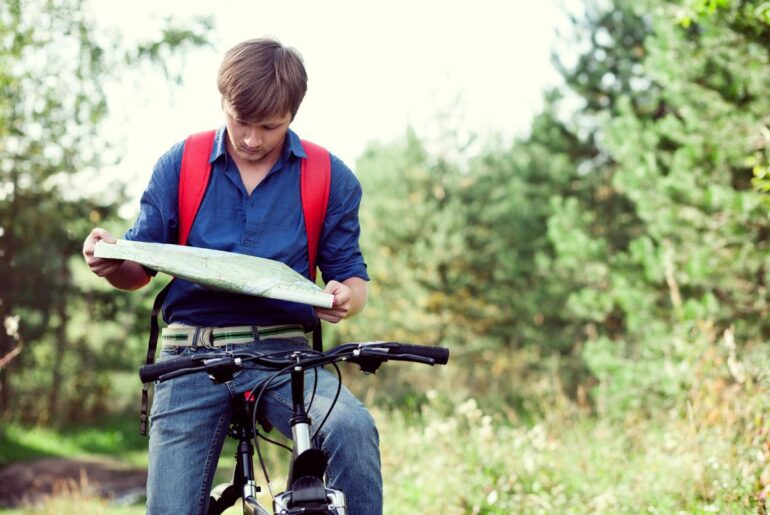As a new crop of high school graduates prepare to go out into the world, their parents are undoubtedly nervous about their upcoming transition. Will they be prepared for what’s ahead? There are so many life skills and emotional tools that teens must be equipped with to succeed after moving out of their family homes.
Practical life skills
It can be easy to forget what it was like to set out on your own as a teenager — and to take for granted the skills you use every day that help you function as an independent adult. We all had to learn those skills somehow, but those who learned them in a low-stakes environment before they moved out most likely encountered less stress during their transition to adulthood.
To ease your own child’s transition, make sure they already know some basic life skills before they leave home. This checklist offers some practical tips for how to prepare teenagers for life after high school —
Download a free printable life skills checklist to review with your child to make sure they don’t miss out on any of these important skills!
- Financial skills: Teens should have a checking account and a savings account and be familiar with how to use them. They should also know how to make and stick to a basic budget. Making them familiar with the approximate price of items they’ll be shopping for on their own, and teaching them how to comparison shop to find the best deal, can be helpful, too.
Teens should also learn how credit cards work, when to use them (or not use them), and the benefit of using cash/debit cards over credit. Kids can start getting credit card applications right after graduation, and understanding how they work can help them avoid immediately racking up debt. - Cooking: Teenagers should know how to make some basic meals on the stovetop or in the oven. They should also learn about food preparation skills like using knives safely and how to store food properly.
- Cleaning: Kids should learn how to operate appliances like the washer, dryer, and vacuum. They should also know how to wash dishes by hand, and do other basic cleaning tasks like cleaning the bathroom, sorting laundry, and mopping the floor.
- Home management: Paying bills, looking for housing, and signing a lease are all big responsibilities. Teens should learn how to manage their housing situation responsibly. It can be helpful to develop a system with them for remembering important dates and tasks like paying their rent or renewing their lease.
- Personal healthcare: Teens should know basic first aid and how to handle and manage medication. They should be familiar with their health care system and know where to go if they need a doctor or urgent care.
- Navigation and travel: Teens should learn how to get around their town using public transportation, rideshare apps, and navigational tools. If they’ll be driving, they should know how to change a tire, what to do in case of car trouble (safely getting off the road, how to contact car clubs/towing services, etc.), what to do if there’s an accident, and basic auto maintenance.
- Communication skills: Teenagers should learn how to use the Post Office, write a professional letter or email, know how to address an envelope, and make a professional phone call. They should also learn how to communicate with empathy and understanding with people who are very different from them.
- Personal safety: Kids should learn some basic street smarts before they move out on their own. Teach them to be aware of their surroundings when they’re out, and how to stay safe when they’re alone.
Mental & emotional preparation
Aside from the more practical side of preparing your graduate to move out, it’s also extremely important to prepare them emotionally and mentally for the big transition. Until now, many kids have had nearly constant emotional support and guidance. Once they move out on their own they’ll have to take responsibility for managing their own feelings.
Here are some ways parents can mentally prepare their children for living on their own —
- Coping strategies: A good first step is to make sure your teen is equipped with some go-to coping strategies they can turn to when they’re feeling overwhelmed or upset. Journaling, listening to music, and exercising are all examples of coping strategies. This list provides some additional ideas.
- Practice problem-solving: In the months and weeks before your child moves out, find ways for them to practice problem-solving on their own. If they ask you how to do something or what to do in a particular situation, turn the question around and ask them what they think the answer might be. You can even ask for their advice on small problems you’re dealing with to give them more practice and increase their confidence.
- Encourage mindfulness: It can be easy for kids to get hyper-focused on their futures and the impending transition to a more independent life. Remind them as much as possible over the coming months to stay present and mindful. The practice of staying focused on the present can lower stress and help kids manage their emotions better on their own. This list will give you some strategies for encouraging mindfulness in teens.
- Boost their confidence: They will most likely encounter peer pressure, toxic friendships, and other social challenges when they move on from high school. One way you can counter these challenges is to boost their self-esteem and confidence as much as possible before they leave home. Higher self-esteem means they’ll be less likely to cave to peer pressure in order to fit in.
- Goal-setting: Teens can get easily swept up in the excitement and changes (and freedom!) that life after high school brings. Setting and sticking to goals can be a helpful way to keep focused when it’s feeling difficult to stay disciplined. Talk through their long-term and short-term goals together, and have them write them down somewhere they’ll see on a regular basis.
Don’t forget that you may need some emotional preparation as well. It may feel like there’s a void in the home for a while, and you may feel a lack of control or left out as your teenager becomes more and more independent. Accepting these difficult feelings and talking about them with a partner, trusted friend, or therapist can help you through this complicated time.
As you begin to let go and your graduate moves on to a more independent life, you will both benefit from taking the time now to practically and mentally prepare yourselves for this challenging and exciting transition.







